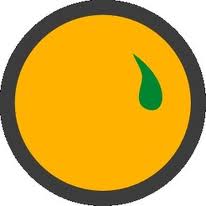In last week's class our team of judges have selected the winner of this year's business plan writing class. The winning business plan was written by a team of students around Mikkel Kinnerup the co-founder of Tangerine District. In their submission the student team has developed a plan for providing the Tangerine District Software to Nigerian SMEs.
Read more about Tangerine here: http://www.tangerinedistrict.com/
Thursday, 1 December 2011
Friday, 18 November 2011
The Business Plan ideas are served
Now that the 2011 Minor in Social Entrepreneurship is coming to an end I would like to share with you the results of the "Business Plan Writing for Social Enterprises" elective. Nine student groups have identified opportunities for social change and written detailed business plans.
Start-up ideas include:
You can see their brief overviews here:
http://www.facebook.com/pages/J28-Business-Plan-Writing-for-Social-Enterprises/263780646986240?sk=wall&filter=1
Start-up ideas include:
- a portable cooling box for vaccines,
- ERP Software for African SMEs,
- organic roof top gardens,
- a healthy fast food chain,
- a vocational training program to help indigenous Bolivians become chefs and restaurant owners,
- a Social Entrepreneurship conference in Denmark,
- an IT platform to help immigrants integrate in society,
- a green markerting website,
- and a market place for philanthropic ideas.
You can see their brief overviews here:
http://www.facebook.com/pages/J28-Business-Plan-Writing-for-Social-Enterprises/263780646986240?sk=wall&filter=1
Tuesday, 15 November 2011
A Social Enterprise since 1964: Minnesota Diversified Industries

When reading about social enterprises one might get the impression that this is an invention of the last decade. But in reality social enterprises have been around for much longer. An interesting social enterprise is Minnesota Diversified Industries which has employed people with disabilities for nearly half a century. MDI describes what it does as offering progressive development and employment opportunities in competitive business enterprises. Its goal is to create real jobs that create a sense of pride, value and independence in its workers’ lives.
Read more: http://www.mdi.org/index.php/about-mdi/
Wednesday, 9 November 2011
Food for thought
The Danish NGO Ibis has just launched a new collaboration with Danish food entrepreneur and celebrity Chef Claus Meyer. Meyer recently visited Bolivia where he and ibis looked into the possibilities of opening a "food culture and cooking school" for indigenous people of Bolivia. The project will train 15-19 year olds recruited locally with help from several Bolivian social organizations. Bolivia, which is South America's poorest country, has a large and
vulnerable indigenous people, but also a fantastic commodity basis. Meyer wants to explore how Bolivians "can use food, as an effective instrument in providing unskilled and
disadvantaged young people a reason to be a generation of grassroots
entrepreneurs who will be able to lift their families and communities
out poverty and hunger."
Read more at: http://www.clausmeyer.dk/da/claus_meyers_fond.html
Read more at: http://www.clausmeyer.dk/da/claus_meyers_fond.html
Tuesday, 1 November 2011
New book out on Aravind Hospital

On the 7th of November BK Business press will launch a new book "Infinite Vision: How Aravind Became the World's Greatest Business Case for Compassion". The book describes the story of Dr. Venkataswamy who has founded Aravind Hospital, an Indian eye-clinic, which has put conventional business logic on its head by allowing patients to choose whether or not they pay for the services they receive. As a result millions are treated for free (making Aravind the largest provider of eye care on the planet). One key source of success is Aravind's ability to provide its services at a hundredth of what providers in developed countries charge. The study of fast food franchises has been one source of inspiration for this amazing success story.
Wednesday, 12 October 2011
The Social Capital Fund
A key challenge for social entrepreneurs is the access to capital. "Den sociale kapitalfond" (The Social Capital Fund) is Denmark’s first social venture fund. The fund, which has received start capital from TrygFonden, plans to make 5-6 investments of approx. 2-4 mio. DKR (€270.000 – 540.000) in social entrepreneurs working with/for marginalised groups in society over the next three years thus enabling them to build proof of concept.

SKF's founder, Lars Yannick Johansen (picture left) is now looking for successful entrepreneurs and venture capital capacities as well as social sector experts (particularly within work-integration) for its Advisory Board and network of senior experts.
Read more at: http://www.social-capital.dk/about-ipc
Saturday, 8 October 2011
Kaospilots - Where social innovation goes to school
An interesting article about Danish social entrepreneurs (S-ENTs) has been published by Tina Broberg and per Krull in the Journal of Corporate Citizenship.
The paper is based on a study of the Scandinavian-based three-year educational programme, the KaosPilot School of Leadership and Social Entrepreneurship. The school presents an exciting case by employing action- and design-based approaches to learning and by integrating sustainability, social innovation and cultural diversity as cornerstones of the curriculum with the aim of developing creative and responsible leadership.
Read more: http://www.perkrull.dk/wp-content/uploads/Abstract.Broberg.Krull_.pdf and www.kaospilot.dk
The paper is based on a study of the Scandinavian-based three-year educational programme, the KaosPilot School of Leadership and Social Entrepreneurship. The school presents an exciting case by employing action- and design-based approaches to learning and by integrating sustainability, social innovation and cultural diversity as cornerstones of the curriculum with the aim of developing creative and responsible leadership.
Read more: http://www.perkrull.dk/wp-content/uploads/Abstract.Broberg.Krull_.pdf and www.kaospilot.dk
Subscribe to:
Posts (Atom)


